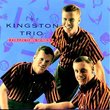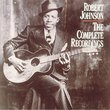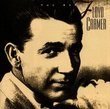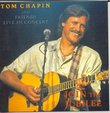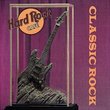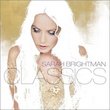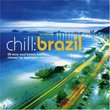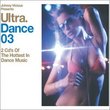| All Artists: Francesco Cilea, Gaetano Donizetti, Pietro Mascagni, Giacomo Puccini, Giuseppe Verdi, Marcello Viotti, Munich Radio Orchestra, Rolando Villazón Title: Italian Opera Arias Members Wishing: 0 Total Copies: 0 Label: EMI Classics Release Date: 2/10/2004 Genre: Classical Style: Opera & Classical Vocal Number of Discs: 1 SwapaCD Credits: 1 UPCs: 724354562624, 724354562655 |
Search - Francesco Cilea, Gaetano Donizetti, Pietro Mascagni :: Italian Opera Arias
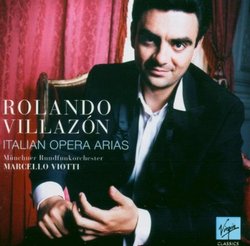 | Francesco Cilea, Gaetano Donizetti, Pietro Mascagni Italian Opera Arias Genre: Classical
This is a glorious debut recital by a tenor, from whom, if he sings the right roles and keeps way from jet-setting and too much singing, might just be the lyrico-spinto tenor we've been waiting for. He has the class of Car... more » |
Larger Image |
CD DetailsSynopsis
Amazon.com This is a glorious debut recital by a tenor, from whom, if he sings the right roles and keeps way from jet-setting and too much singing, might just be the lyrico-spinto tenor we've been waiting for. He has the class of Carlo Bergonzi and a ringing tone which is somewhere between Domingo's big, dark sound and Pavarotti's brightness; he sings with a true mezza voce (not a falsetto); he always obeys the composer's markings and delineates character. He seems incapable of vulgarity, refusing to gulp or sob when a musically expressive gesture will do. The opening aria here--from L'Arlesiana--is so beautifully, touchingly sung that it's a heartbreaker; he doesn't take the usually opted-for high note near the end, but never fear: in the Traviata and Bohème excerpts, Villazon offers big, whopping high Cs. This CD is a knockout; let's hope it's only the beginning of an illustrious career, both recorded and live. --Robert Levine Similarly Requested CDs
|
CD ReviewsIs He the One? J Scott Morrison | Middlebury VT, USA | 03/24/2004 (5 out of 5 stars) "I first heard the name of Rolando Villazón this morning, on NPR, when he was interviewed and a few clips of his singing were played. It was, for me, a visceral reaction, like an electric shock. I had not had this kind of reaction to a new (to me) tenor since I first heard Luciano Pavarotti sing in 1968. I spoke briefly with one of my acquaintances who is knowledgeable about opera and singers and she told me how very impressed she was by this young Mexican singer. She and her husband had gone to New York last fall for his Met début in 'La Traviata.' And she has even made arrangements to fly from the east coast to Los Angeles next February to hear him sing in 'Roméo et Juliette.' I trust her judgment in these matters, but indeed I really didn't need her to tell me how good this young man is.As soon as a record store opened, I rushed to buy a copy of his only solo CD - this one - and I've been playing it more or less non-stop since then. I'm certainly no expert, but try as I might I cannot find anything about the voice, the technique, the musicianship to quarrel with. And the voice retains for me that visceral quality I mentioned. I read the review posted just before this one - by brescd01 - and agree with everything he says. The voice is most similar to that of Plácido Domingo, with something of baritonal quality, but there is also the brightness of Pavarotti. Add to that the musicianship and elegance of Bergonzi.For me the high point of the CD is Federico's Lament from Cilea's 'L'Arlesiana.' The thing that comes through, in addition to the exquisite control of this difficult aria, is the utter conviction with which he sings without resorting to any of the more vulgar conventions of Italian tenors.But in fact there isn't a weak selection there. 'Una furtiva lagrima' is simply gorgeous, sung with a meatier voice that Pavarotti's but still with Nemorino's innocence. The two Puccini arias ('E lucevan le stelle' and 'Che gelida manina') are sung with ardor, long line, a free ringing top. Oh my. And the list goes on: 'Parmi veder' and 'La donna mobile' can stand comparison with any I've ever heard. In the two Mascagni arias Villazón musters the requisite heft without forcing. The accompaniment by Marcel Viotti and the Munich Radio Orchestra is sensitive and nuanced.We've been waiting a long time for The Next Real Tenor and if he marshals his resources wisely I think young Señor Villazón just might be The One.Urgently recommended.TT=61:19Scott Morrison" A Musician's Musician AND a Matinee Idol! Grady Harp | Los Angeles, CA United States | 03/24/2004 (5 out of 5 stars) "Welcome, Rolando Villazon! Finally, with the issuing of this excellent CD, we have take-home treasures by the young Mexican tenor who is lighting up opera houses and opera videos around the world. As is so often the case with "instant stars" one wonders if in the intimacy of the home the stage product will bear comparison. Fret not, Villazon is the real thing! Although many are finding the need to compare him to other tenors, Villazon stands squarely on his own distinctive style - that style being intelligent, passionate, well-produced and well-utilized vocal technique. Not since Fritz Wunderlich or Jussi Bjorling (there, I did it, too) have we had a tenor who places emphasis on the composers' intentions, being able to produce fireworks when high notes are needed and yet breathe into legato lines with sotto voce and with no apparent seams. He truly understands pianissimo - and that is rare. His voice has a rich and supple color and he is able to move from composer to composer on this disc of Italian Arias like a tenor to the manner born. This initial CD gives us the expected Puccini, Verdi, and Donizetti but it also includes less familiar fare from Cilea and Mascagni. Villazon is a true lyric tenor and is able to step into the spinto sound with complete ease. This is a major new talent and with this recording it sounds as though he is intelligent enough to use his wondrous instrument correctly. He should be around for a long time and doubtless will gain an adoring public to match that of any of the Great Tenors." Full-Bodied Tenor Voice Showcased in Mostly Familiar Program Ed Uyeshima | San Francisco, CA USA | 11/30/2004 (4 out of 5 stars) "There has been a bumper crop of strong discs from a multitude of very talented international tenors this past year - Juan Diego Florez, Roberto Alagna, Marcello Alvarez, Ramon Vargas and Joseph Calleja are most prominent. Right up there among this select brethren is this debut recording from Mexican tenor Rolando Villazón. With a deep, fulsome sound to his voice, he brings sharp emotive power to his performance without overdoing it as some others do in a pool of Pagliacci's tears. In fact, Villazón is a true lyric tenor with a genuine understanding of pianissimo. It's a near-flawless voice that seems ideal for the lovers and would-be lovers that are the mainstays of Italian opera.
Verdi, Puccini and Donizetti are standard fare for such a robust voice, and in that respect, the program is somewhat predictable. Truth be told, I could have done without "La donna è mobile" from Verdi's "Rigoletto", which has to be the most overplayed Italian song this side of "O sole mio". At the same time, he provides some nice surprises beginning with the first track, a stunning aria from Cilea's "L'Arlesiana", "E la solita storia", where his vocal control is exemplary. Coincidentally, Calleja performs the same song on his similarly programmed "Tenor Arias"; both versions are distinctive and memorable. Regardless, even on the old warhorses performed ad infinitum by the likes of Pavarotti and Domingo, Villazón brings a dramatic clarity, lyrical command and purity of tone to familiar numbers such as Carlo's Act I aria, "Io l'ho perduta...lo la vidi" from Verdi's "Don Carlo"; Marcello's Act IV recitativo, "Il duca d'Alba Inosservato...Angelo casto e bel" from Donizetti's "Il duca d'Alba"; and Rodolfo's Act I aria, "Che gelida manina" from Puccini's "La Boheme". What comes across consistently is a virile, full-bodied voice, almost baritone in weight and quality, that makes the slightest quiver in his phrasing very effective in shading his performances. For example, if you compare Villazón's version with Calleja's of Donizetti's concluding aria, "Tombe degli avi miel...Fra poco" from "Lucia di Lammermoor", Villazón delivers a more emotionally naked rendition that reveals Edgar to be a heroic lover, whereas Calleja sings with a more cautious and haunted vulnerability that makes his Edgar to be a more sensitive soul. Neither is right or wrong, just different. Villazón rounds out his program with the early 20th-century so-called "can belto" selections from Puccini and Mascagni to balance the bel canto standards. Throughout this impressive debut, he is ably accompanied by the masterful musical direction of Marcello Viatti leading the Münchner Rundfunkorchester. I still think the jury is out as far as his designation as the "Fourth Tenor" (he's only 32), but given what he has accomplished here, I certainly think that Villazón can be considered a true contender." |

 Track Listings (15) - Disc #1
Track Listings (15) - Disc #1
